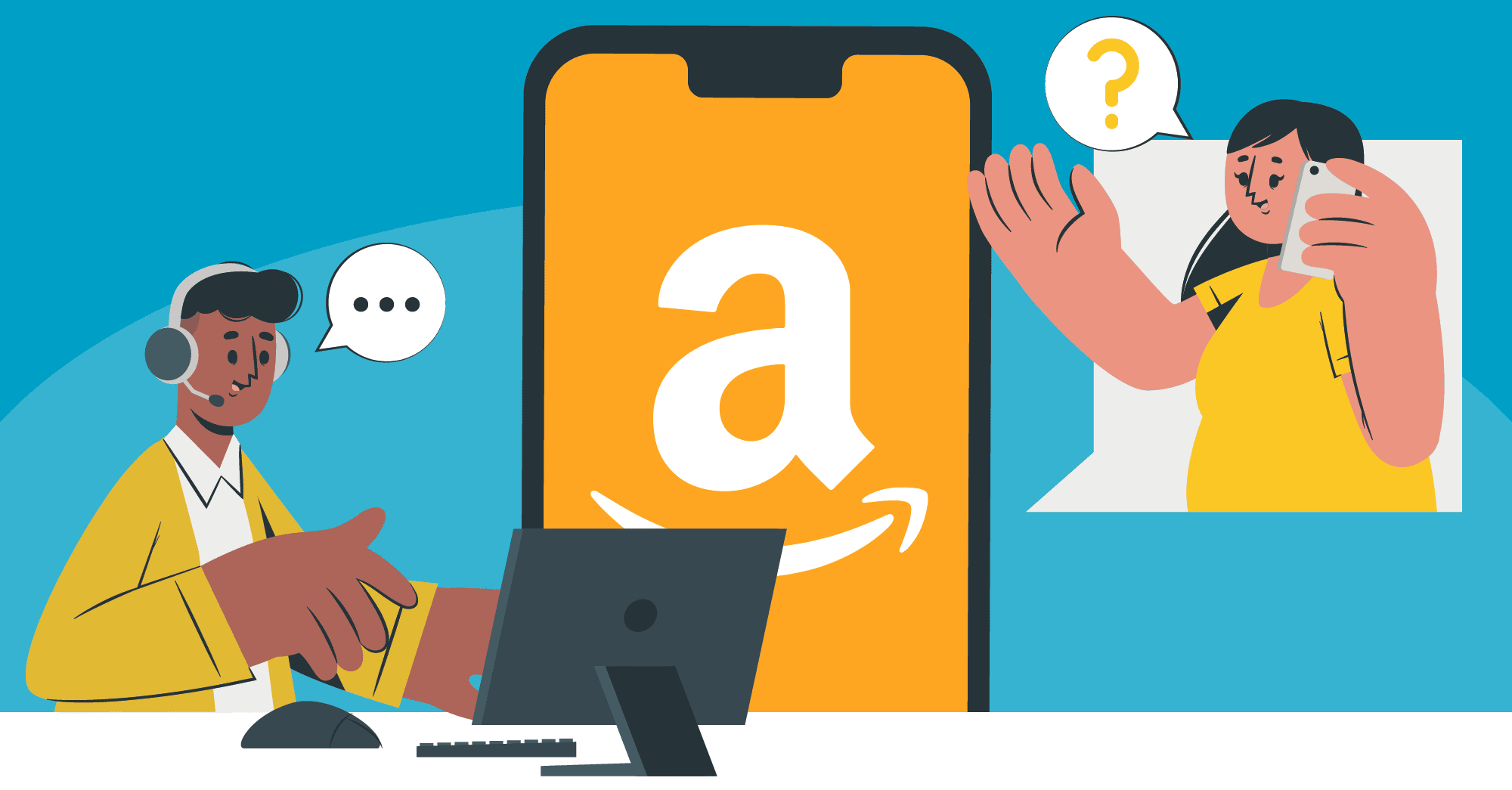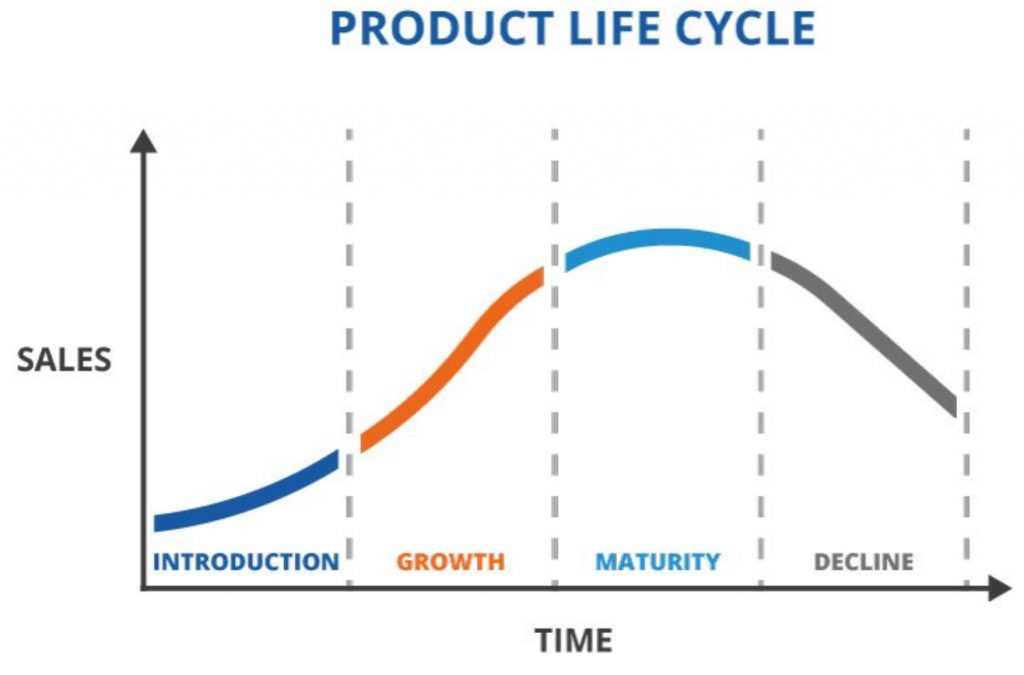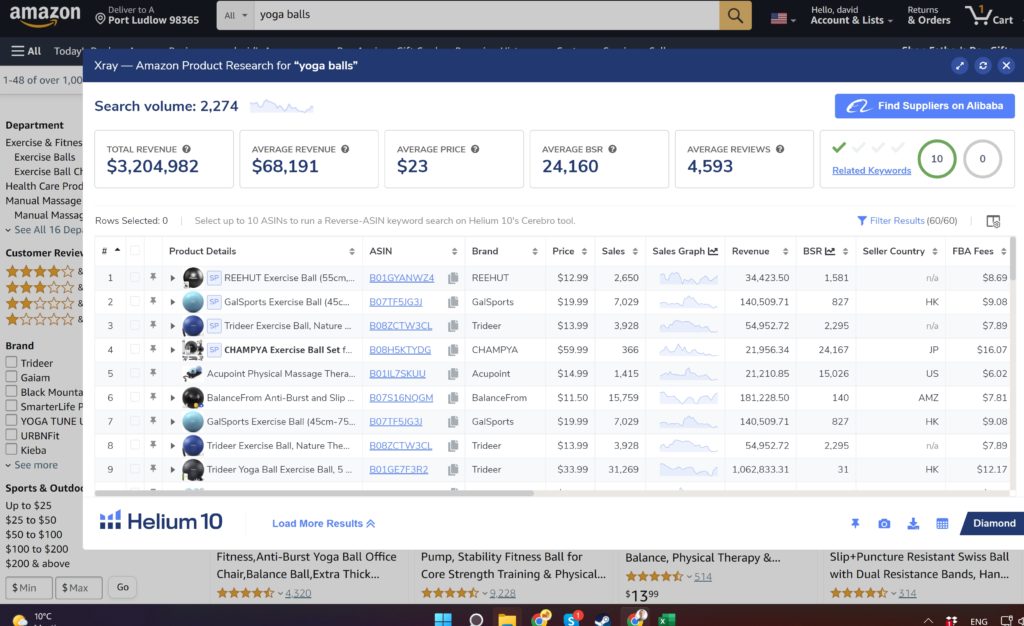Why Amazon Businesses Suck

Amazon businesses suck.
This isn't some promotional blog post to teach you about the next hottest ecommerce trend like marketing on TikTok or creating a Shopify store instead.
This also isn't a blog post to tell you not to start an Amazon business because there's no hope in them. Just watch one episode of Shark Tank and see how many times a brand mentions they get most of their business from Amazon to see the opportunity out there.
It's not even a blog post poopooing on Amazon for being terrible to sellers – frustrating as they may be at times, Amazon is generally a lot better to sellers than many other platforms.
This is mostly a therapeutic blog post to articulate the feelings I get every time I build an Amazon business to any size and get that “I want out of this business” feeling. Yes, every business and every business model has weaknesses, but in my very humble opinion, Amazon businesses have intrinsic issues that make them far suckier than other businesses.
Why Amazon Businesses Don't Suck
I've known for years that Amazon businesses suck, but I could never quite figure out why they do. How do I know they suck? I've now basically built two significant Amazon businesses (multiple brands, but for all intents and purposes, two businesses). And every time one of those businesses gets momentum, I feel the desire to run away from that business instead of running towards it.
People complain about being an Amazon seller in so many ways. I used to latch on to these reasons to justify why being an Amazon seller sucks. But lately, I've realized they're not all true for the most part, and now I find myself defending Amazon. Reasons like:
“Amazon suspends sellers unjustly or for a minor infraction and if they do, your business is screwed.” Nope. In nearly 10 years, I've had an Amazon account suspended exactly one time, and it was for less than 24 hours. And why did it get suspended? We didn't upload tracking information for our orders (back when Merchant Fulfilled was a thing). We didn't upload them for months and months. Amazon warned us and warned us. Finally, they dropped the hammer and suspended us…and then restored our account almost immediately once we promised to start uploading tracking information. It was a totally fair process. I've never known a single Amazon seller to have their account unjustly suspended for any serious length of time (I'm sure YOU exist out there somewhere, but it's very very rare).
“There's no more opportunity on Amazon. There's too much competition.” Oh yeah, competition is huge (and I'll get to that in a second). But people who say there's no opportunity on Amazon are just lazy. No, you can't just go find a product on AliExpress and send it to Amazon and make kazillions. But if you spend just a bit of time and make pretty simple and easy changes to a product, you're going to do pretty well. We launched multiple products this year and most of them do well (until they don't—more on that later).
“Amazon is so unfair to Sellers.” Of course, Amazon cares about customers more than sellers, and they'll let them return anything (even that camping tent they used for their one camping trip of the year). But overall, Amazon is pretty good to sellers, and their policies are pretty well thought out. Take for example this recent 5% FBA fee Increase for fuel/inflation surcharges. OK it sucks but 1) it's pretty small, and 2) want to guess how much other carriers have increased their fees recently? And yes, Seller Support is a giant PITA to deal with but eventually, you can talk to someone on the phone that actually remotely knows what they're doing and can help fix a problem. Try that with Google or Facebook.
Here's Why Amazon Businesses Really Suck
I had the revelation of why Amazon businesses suck a couple of weeks ago while I was excavating my front yard (strictly by my hands and a shovel I might add) and I needed to go buy some plants. I know nothing about plants, so I went to a nursery owned by a friend of a friend.
This nursery is owned by “Jay.” They've had the nursery in their family for nearly 50 years when it was started by the owner's father who had immigrated from Holland (it's a nursery – of course it's owned by a Dutch family). It's been in the family for multiple generations, and the current owner, Jay, will likely pass it on to his kids and so on. Their nursey is a staple of the community off of Old Dewdney Trunk road in Maple Ridge. You want plants? You drop by Amsterdam Garden Center.
As any respectable father does, I've been planning out my daughter's life for her until she's 40 the second she was born. And I thought, “How nice it will be if I can pass on my Amazon business to Kayla when she turns 26, twenty years from now.”
Ha!
I immediately realized how stupid of an idea this is. When you build an Amazon business and launch products, you're essentially AT&T who's clearing the trees, putting up the telephone poles, and hanging the telephone lines. Except you don't own the telephone poles that you invested your life into. Instead, you get to use those poles yourself for 6 months, 12 months, or maybe 18 months, and everyone else can come hang their telephone lines and use your poles. And worse? The people hanging their lines on your poles can sell telephone services at a fraction of your price because they didn't have to invest anything into putting up the telephone poles.
On Amazon, you get ZERO breathing room. The second you launch a product, you better be thinking about launching your next one. Otherwise, your business will fail in 6 to 18 months. It's the Product Life Cycle. It's not new to Amazon. But what has changed is that from the time of introduction to the time of decline, it's measured in months instead of years.

There's great money in playing the Amazon game of continuously launching products, and the sheer number of hours involved in doing this isn't huge. But there is zero room for breathing. And what happens is that every Amazon business owner gets burned out and quickly. I've seen it happen to me in two businesses now, and I've seen it happen to countless other entrepreneurs.
People always say “you just gotta learn to delegate.” You can delegate PPC. You can delegate content writing. But I've seen very few (any?) Amazon businesses that can survive on their product development being managed strictly by hired employees. It's exactly the problem the Amazon aggregators are running into that all of us Amazon entrepreneurs always knew was a problem. No funding? No products. No products? No profits in a year or two.
I know, I know. This is business. R&D (rip-off and duplicate) is why Coca-Cola has Pepsi and UPS has FedEx. Even Amsterdam Garden Center has other nurseries that have popped up along the same street as them. But in most industries, if you build a nice business, you get years of breathing room, not months. Also, Amsterdam Garden Center can guess how many petunias their competitor Albion Nursey is selling a month. They can't click a button on Chrome that tells them exactly how many petunias they're selling each month like Amazon sellers can do with tools like Helium 10 and Jungle Scout.

In SaaS, product lifecycles are equally as short (if not shorter), but at least when your mobile game gets ripped off in three weeks, you didn't have to place a giant order for 6 months of inventory praying that your listing continues to hold SERP rank once you finally receive it. In SaaS, you can lay off that $250,000 developer if the business gets swamped with competition – with an Amazon business, you can't lay off your $250,000 order for products that had zero competitors when you launched and now has several hundreds.
And in most industries, the “old guys” get some preferential treatment. Amsterdam Garden Center has a premier location on land they own on Old Dewdney Trunk Road. They have 50 years of customers who shop there each Spring out of habit, if nothing else. On Amazon, of course, you get none of that goodwill. Amazon rewards one thing—the lowest price.
So in conclusion: There's a ton of money still on Amazon, and you don't even have to put in a ton of hours to do it right. And yes, Amazon might be the “evil empire” but they actually treat sellers fairly reasonably. However, Amazon businesses still suck.




This is why one of my first criteria for buying an ecommerce business was that it was not on Amazon – or at least not dependent on Amazon. I have to say though, seeing 100+ orders processed through Amazon FBA and realizing that was 2-3 boxes of inventory I had to prep and ship in vs. doing the pick, pack, and ship for 100+ orders is nice. Still, the fact that I can call or email a customer and deal with any problems directly is a huge benefit. It’s also a significant burden compared to the almost completely hands off customer service of selling on Amazon.
Hi Dave;
As a fellow Canadian FBA seller that has been in the trenches for 5 years now, I feel your pain. I never really understood the ‘burnout’ some entrepenurs discussed, but I hit a wall a few months ago, and just want out.
Have the business listed for sale, but no interest because of the current state of the economy (and I am probably priced too high).
Anyways, been following you and Mike for half a decade now, really appreciate all the valuable insight on the podcast and blogs over the years. I attribute alot of my success to you guys!
Sorry to hear you’re feeling the burnout. Being forced to hold your business probably isn’t the worst thing in the world – holding is often the better financial decision :)
Unfortunately, I REALLY relate to this post. My Amazon business is suffering badly, and I’m thinking about pulling the plug and focusing solely on Shopify and wholesale.
I’m 4+ years in, and my sales are a small fraction of their peak in 2019. I knew I should’ve pivoted to other products or created a 2nd brand in 2020 if I wanted to stay in the Amazon game… but the problem was $$$… I had just heavily invested in huge orders to both my suppliers, then Covid killed the demand for my products.
I thought Amazon sales would bounce back after the Covid quarantine phase but unfortunately the problem is mostly due to the endless pages of copycat listings on my biggest sellers. Lower quality, lower priced, crappier versions of my products are outselling me. The end.